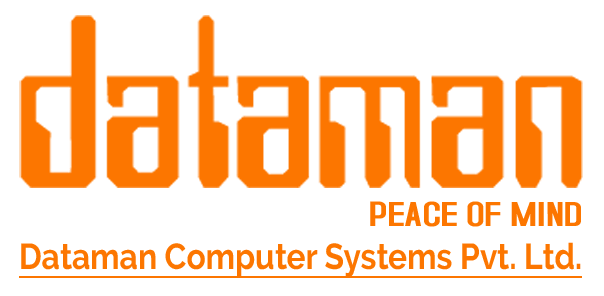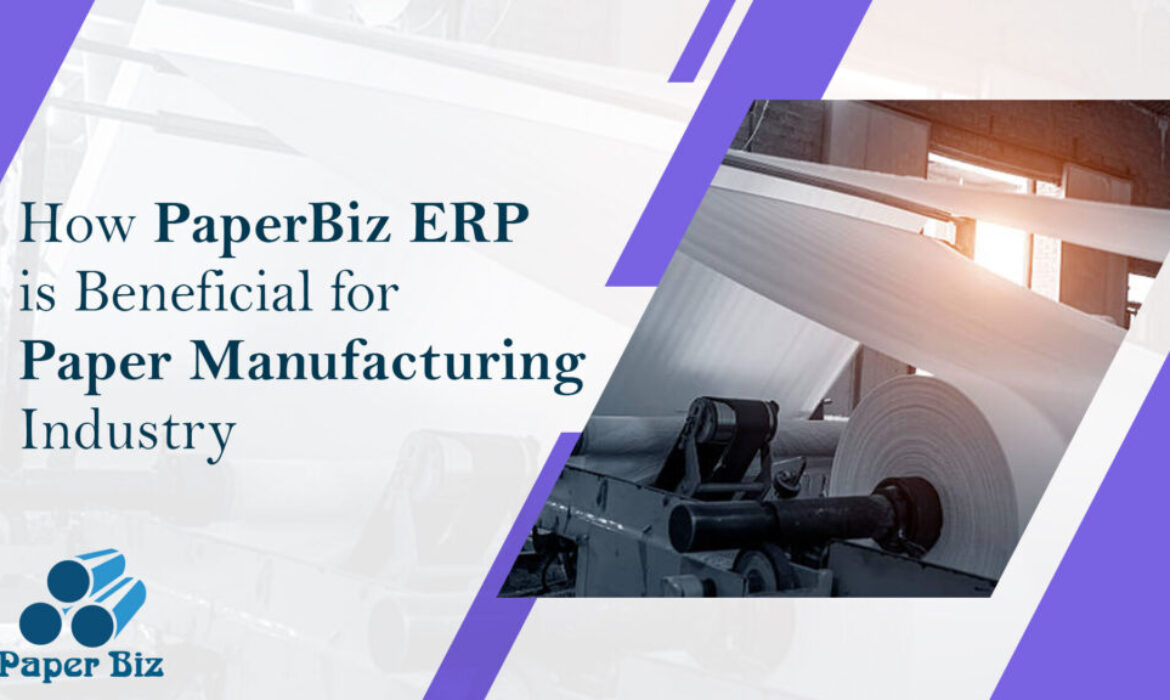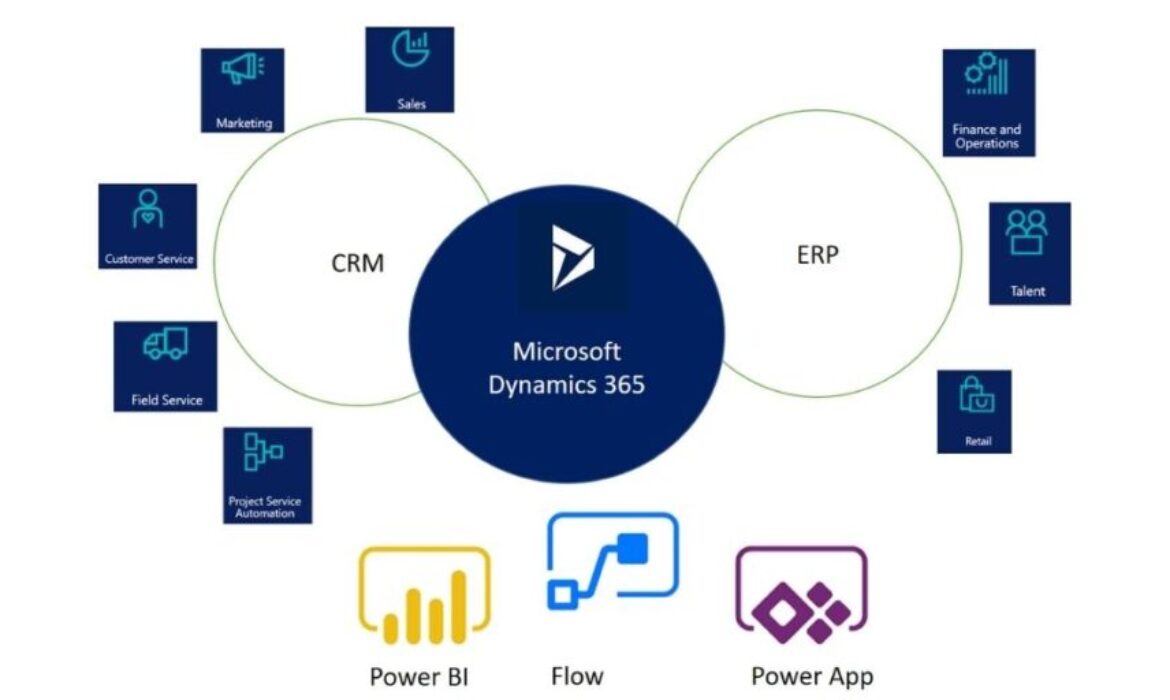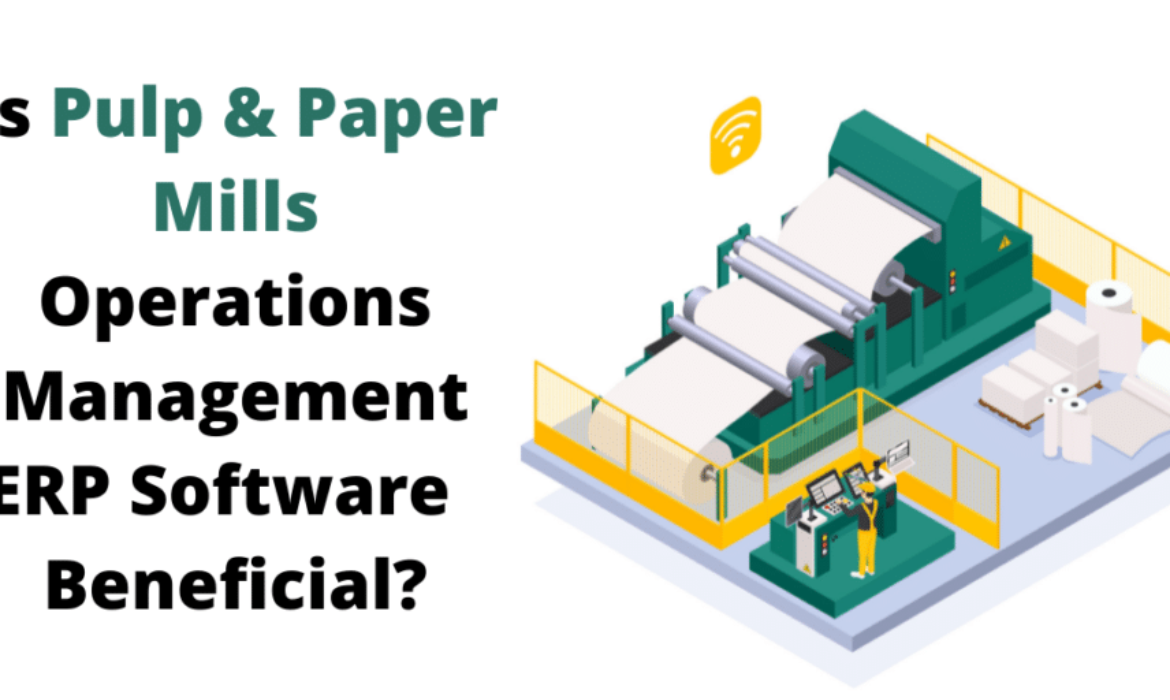How to Open a Clinic in India: A Doctor’s Step-by-Step Guide
Starting your own clinic is one of the most empowering steps in your medical career. It’s not just about independence it’s about creating a space where you provide care on your terms. The process can be Challenging But let’s face it.
How do you choose the right location? What licenses do you need? How do you manage costs without compromising on quality? Don’t worry you’re not alone. This guide will help you navigate every step from planning to execution, while sharing insights from top industry reports by PwC, McKinsey
By the end, you’ll have all the tools and tips you need to launch your dream clinic in India. Let’s dive in!
Why Opening a Clinic is a Smart Move
Opening a clinic is a smart move as it ensures steady income, builds a personal brand, and establishes trust in the community. It offers independence, long-term growth, and the chance to provide personalized care. With rising healthcare demand, a clinic is both a noble pursuit and a profitable investment.
Your team is efficient, your operations run smoother, and your services personalized. Sounds amazing, right? That’s the dream of every doctor stepping into private practice.
What does a Clinic Offer You?
Freedom: Your practice, your rules.
Connection: Build meaningful relationships with patients.
Scalability: Start small and expand as you grow.
But like any dream, it comes with challenges. So, let’s tackle those first.
5 Effective Solutions to overcome the challenges in opening a Clinic in India
1. Healthcare Partnerships for Better Care
Specialists like paediatricians and gynaecologists or cardiologists and endocrinologists create impactful collaborations, addressing conditions holistically. From mental health to chronic diseases, partnerships like psychiatrists with psychologists or oncologists with radiologists enhance patient outcomes.
2. Legal and Professional Guidance
Consult a healthcare lawyer or experienced mentors to navigate legalities and avoid pitfalls.
3. Leverage Compliance Tools
Invest in healthcare software like dmAarogya for seamless record keeping, audits, and meeting ABDM guidelines.
4. Controlling Cost without compromising Quality
While clinics are generally more affordable than hospitals, the initial setup costs can still seem challenging, including expenses for medical equipment, office furniture, salaries, and more.
Begin by educating yourself. Prioritize essential items like diagnostic equipment and patient seating. As your revenue increases, you can gradually expand your services.
10 Key steps to Set up Your Clinic Successfully
Step 1: Have a Business Plan
Why is a Business Plan Important?
A business plan is the foundation for starting your clinic in India. It provides a roadmap for your clinic’s vision, finances, and operations.
1. Clarity of Vision: Clearly defines the clinic’s goals and services.
2. Financial Planning: Helps estimate the startup costs and plan for sustainable operations.
3. Risk Management: Identifies potential challenges and Strategies to address them Effectively.
4. Attracting Investment: Essential if you’re seeking funding or partnerships.
5. Strategic Growth: Provides a roadmap for future expansion and development.
Step 2:Type of Clinic Selection:
1. General Practice Clinic: A versatile care center for everyday health needs and family medicine.
2. Specialty Clinic: Focused on expert care in a specific field of medicine.
3. Walk-In Clinic: Convenient healthcare without the need for an appointment.
4. Multispecialty Clinic: Comprehensive medical services with specialists under one roof.
5. Community Health Center: Accessible care designed to serve local communities.
Step 3: Secure Financing to launch Your Clinic In India
Securing the right financial support is crucial to successfully establishing your clinic. Below are various options to help you fund your dream clinic
1. Doctor Loans
- Specialized loans designed for medical professionals to meet clinic setup costs.
- Flexible repayment options and competitive interest rates.
2. Medical Equipment Loans
- Tailored loans to purchase advanced medical equipment.
- Partner with lenders like Medical Equipment Loan to avail hassle-free financing.
3. Investors and Partnerships
- Seek private investors or strategic partners interested in healthcare startups.
- Present a solid business plan showcasing potential ROI to attract funding.
4. Startup Loans or Business Loans
- Opt for general business loans tailored for small businesses or startups.
- Look for banks and NBFCs offering competitive terms for new ventures.
5. Government Grants and Subsidies
Explore healthcare-specific grants or subsidies provided by the Indian government.
Schemes like NHM, PM–ABHIM, Start up India Initiative, CGMSE, SAMRIDH Clinic Expansion Fund, offer support to start your clinic in India
It’s advisable to visit the official websites of these schemes to get detailed information about eligibility criteria,application procedures and the extent of financial assistance available for setting up a clinic in india
Step 4: Staff Your Clinic
1. Hire Qualified Professionals
Recruit licensed doctors, nurses, and technicians with expertise relevant to your clinic’s specialty.
2. Appoint Support Staff
Employ administrative personnel for front-desk operations, billing, and record-keeping, along with maintenance staff for cleanliness and upkeep.
3. Conduct Training Programs
Provide comprehensive training on clinic protocols, patient management, and the use of medical equipment.
4. Build Strong Team Dynamics
Encourage collaboration through regular team meetings and foster a positive work culture.
5. Ensure Regulatory Compliance
Adhere to Indian healthcare regulations, including clinical establishment registration and staff certifications.
Step 5: Choose the Right Location
1. Finding the Perfect Location
The location of your clinic can make or break your business. You need to think about these at first
Accessibility: Can patients reach you easily?
Visibility: Is your clinic in a spot where people notice it?
Affordability: Is the rent or purchase cost manageable?
Solution: Choose areas with high foot traffic near residential zones or commercial hubs. Avoid highly competitive markets unless you offer a unique service.
Step 6: Get the Necessary Licenses
Compliance might feel time consuming, but it’s your legal protection. You’ll need:
Certifications and Accreditations required to open a Clinic in India
| License Name | Why It’s Important | Examples |
|---|---|---|
| Clinic Registration Certificate | Ensures legal standards for safety and quality. | A general healthcare clinic in Bengaluru. |
| Doctor’s License | Legally allows doctors to treat patients. | An ENT specialist registered with the Medical Council of India. |
| Trade License | Permits a clinic to operate as a business. | Private clinic operating in Delhi. |
Pro Tip: Keep a checklist to track renewals and deadlines.
Step 7: Set Up Your Clinic
Make your clinic welcoming, functional, and professional
Reception Area: Comfortable seating, Adequate lighting, and a friendly receptionist.
Consultation Rooms: Make sure there’s privacy. Include basic medical tools and comfortable furniture.
Medical Equipment: Start with essential tools like BP monitors, ECG machines, and basic diagnostic kits.
Step 8: Build a Reliable Team
Hire professionals who share your vision for quality healthcare.
- Nurses and assistants for clinical support.
- Administrative staff for seamless operations.
- A part-time accountant to handle finances.
Step 9: Integrate Technology
Why Your Clinic Needs Technology
Automated Documentation: No more missed deadlines for licenses or audits.
Digital Integration: Align with the ABDM effortlessly.
Telemedicine Features: Expand your reach to remote patients.
Secure Records: Keep patient information safe and accessible.
Step 10: Launch and Build Patient Trust
After integrating technology and setting up your clinic, focus on delivering exceptional patient care. Establish a trustworthy reputation by:
- Ensuring transparent communication and ethical practices.
- Building strong doctor-patient relationships.
- Collecting feedback to improve services.
- Promoting your clinic through local outreach, online platforms, and community engagement.
This final step ensures your clinic becomes a reliable healthcare destination.
Insights on Financial Costs to Open a Clinic in India (2025)
| Expense Category | Details | Estimated Cost (INR) |
|---|---|---|
| Initial Registration Costs | Licensing, certifications, and trade registration for legal operations. | ₹50,000 – ₹1,00,000 |
| Space and Infrastructure | Rent or purchase of space, interior setup, furniture, and decor. | ₹5,00,000 – ₹15,00,000 |
| Medical Equipment Investment | Tools for diagnostics, basic treatments, and lab | ₹3,00,000 – ₹10,00,000 |
| Facilities | ||
|---|---|---|
| Staffing Expenses | Hiring qualified doctors, nurses, and admin staff. Monthly recurring. | ₹1,50,000 – ₹5,00,000/month |
| Marketing & Branding Budget | Promotions via digital ads, local newspapers, and clinic signage. | ₹50,000 – ₹2,00,000 |
| Medical Equipment Investment | Tools for diagnostics, basic treatments, and lab | ₹3,00,000 – ₹10,00,000 |
Essential Steps for an Efficient Billing Process in Your Clinic
1. Choose the Right Billing Software
Streamline your clinic’s financial operations Invest in user-friendly Healthcare billing software dmAarogya automate invoicing, track payments, and manage patient accounts.
2. Provide Billing Software Training for Staff
Ensure your staff is proficient in using billing software to avoid errors and provide excellent patient service.
3. Hire Qualified Billing Professionals
Accuracy and compliance matters,Employ trained and experienced billing professionals who can ensure all transactions are correctly processed and compliant with regulations.
4. Maintain Transparency in Billing
Clearly communicate billing procedures, charges, and insurance policies to patients for a transparent and positive experience.
5. Ensure Billing Compliance with Healthcare Regulations
Stay up to date with the law- Ensure your clinic complies with Indian healthcare billing regulations to avoid legal complications and penalties.
6. Offer Multiple Payment Options
Provide multiple payment methods (cash, cards, online payment) to enhance convenience and speed up transactions.
7. Implement Automated Payment Reminders
Stay on top of collections, Use automated reminders for patients regarding outstanding balances to ensure timely payments and smooth cash flow.
8. Regularly Review Billing Processes
Regularly audit and update your billing procedures to ensure efficiency, accuracy, and adherence to the latest regulations.
Conclusion
Transform Your Dream Into Reality – Open Your Clinic Today
Starting a clinic in India is your chance to blend passion with purpose and build a trusted healthcare brand. From choosing the perfect location to integrating cutting-edge technology like telemedicine, every step counts. With the growing demand for quality healthcare, now is the time to step up and make your mark. Follow this guide, and your clinic can become a trusted name in India’s healthcare revolution.
How To Overcome The Challenges Faced By First Generation Doctors-expert Solutions
Introduction: First Generation Doctor's Journey
Are you a first-generation doctor, or know someone who is ? This article is for first-generation doctors who want to start their practice. The article explores the real challenges faced by First generation Doctors in India and provides valuable insights to overcome them.
As a first-generation doctor, you may face unique challenges that others might not fully understand. Despite years of hard work, late nights, and sacrifices, you may still feel you are likely carrying student loan debt on your own and the pressure of building a stable future without family support. Balancing work and personal life can feel overwhelming, and it’s normal to wonder, “Do I really belong here?”or “Am I good enough?”Rest assured, these feelings are common, and you’re not alone. You’ve already achieved so much, but the question remains what’s next?
If you’re dreaming of starting a private practice but aren’t sure where to begin, I’m here to help you. I can guide you step-by-step, from planning your practice to ensuring its long-term success.
First Generation Doctor in India
In India, the term “first-generation doctors” refers to individuals who are the first in their families to pursue and establish a career as a doctor. Traditionally, medical education has been a privilege of well-established, often wealthy families due to its high cost and intense competition. However, first-generation doctors are breaking these barriers and reshaping the landscape of healthcare. Their role becomes even more critical when considering a striking disparity as highlighted by PWC : 75% of doctors and healthcare infrastructure are concentrated in urban areas, while 65% of the population resides in rural regions. This urban-rural divide makes the emergence of first-generation doctors a vital step toward bridging the healthcare gap and ensuring equitable access for all.

Competition and Demand for Doctors in India
India Needs Doctors Like Never Before
India has only 60 doctors per 100,000 people, significantly below the World Health Organization’s recommended 100 per 100,000. PWC WHO
India’s population is growing, and so is the need for healthcare, especially with the rise in lifestyle diseases. As a first-generation doctor, you have unique opportunities to make a mark. Whether it’s exploring underserved areas, adopting telemedicine, or specializing in something you’re passionate about, the demand is there. It’s about finding your space and using your skills where they’re needed most.
Challenges Faced by First-Generation Doctors in India Solutions to overcome them
| Challenge | Description |
|---|---|
| Financial Constraints | High medical education costs leave new doctors at significant disadvantage to start off. |
| Lack of Guidance/Mentorship | Limited access to mentorship and guidance from experienced professionals. |
| Regulatory Compliance | First-generation doctors struggle with understanding complex regulatory requirements, lacking prior experience or guidance, leading to increased stress and time spent navigating compliance issues independently. |
| Limited Professional Network | Without family connections in the medical field first generations struggle to build Professional networks or find opportunities. |
“First Generation Doctors: Confused About Your Next Step?” Private Practice vs Job

Opening a healthcare-related business whether it’s a clinic, a diagnostic lab, a hospital, or a pharmacy or Pursuing a Job presents unique challenges that depend on factors such as capital investment, regulations, competition, and operational requirements. We are providing you a detailed comparative analysis of these challenges.
Starting Your Own Practice (Private Practice)
Challenges:
1. High Start-up Costs: Opening a practice involves significant upfront investment in office space, equipment, licensing, and staff.
Solution: Seek financial support through small business loans, grants, or partnerships with other doctors to share costs.
2. Administrative Burden: Running a practice can be challenging because it includes managing billing, insurance, compliance, and staff.
Solution: Invest in practice management software and hire a competent office manager to handle administrative tasks.
3. Risk and Uncertainty: A new practice may take time to become profitable, and there’s the risk of failure.
Solution: Develop a strong business plan, focus on marketing, and gradually build a loyal patient base to reduce financial risks.
Benefits:
- Greater earning potential as the owner
- Full control over your practice’s direction and patient care
- Flexibility in your schedule
1. Opening a Clinic
A medical clinic is typically the most accessible healthcare business for a first-generation doctor, but it still requires overcoming several barriers.
Challenges:
- Location: Selecting the right location for a clinic can be difficult. It must be accessible to the target patient and in an area with sufficient demand for the type of services offered.
- Competition: Clinics compete with other medical professionals, hospitals, and local health centers. The market may already be controlled by well-known doctors or large healthcare networks.
- Regulatory Compliance: Navigating local health regulations, obtaining licenses, and following medical practice laws can be a hurdle for newcomers.
- Cost: Initial costs may be lower compared to labs or hospitals, but still major especially for medical equipment, office space, and staff salaries.
Solutions:
Partnership : As a doctor you can partner with more experienced doctors in the fields that are directly related to you. For eg. As a pediatrician you can partner with a Gynecologist. Physiotherapists can partner up with Orthopedic surgeons.
Symbiotic relation of doctors :
1. Cardiologist and Endocrinologist
Diabetes prevalence is expected to reach 73.5 million cases by 2025 according to PWC highlights the growing burden of chronic diseases and the increasing demand for endocrinologists and related specialists.
2. Oncologist and Radiologist
Based on a McKinsey report on healthcare strategies, the demand for specialists like cardiologists and oncologists is expected to rise by 40% due to the growing prevalence of non-communicable diseases (NCDs).
3. Dermatologist and Plastic Surgeon
Dermatologists treat skin conditions and plastic surgeons perform surgeries to improve appearance.Together they provide complete care for skin,health and aesthetics.
4. Nephrologist and Urologist
Nephrologists focus on kidney health, while urologists address urinary tract conditions. They collaborate to treat complex issues like kidney stones and urinary tract issues.
5. Psychiatrist and Psychologist
- Location Selection: Choosing the right location for a clinic is crucial for the success of any healthcare practice, Choose location with High Foot Traffic, Affordable Rent, Proximity to Residential Areas, Near Hospitals or Medical Centers
(1.) Understand Local Regulations
Research specific licenses, permits, and certifications required.
Certifications and Accreditations required to open a Clinic in India
| License Name | Why It’s Important | Examples |
|---|---|---|
| Clinic Registration Certificate | Ensures legal standards for safety and quality. | A general healthcare clinic in Bengaluru. |
| Doctor’s License | Legally allows doctors to treat patients. | An ENT specialist registered with the Medical Council of India. |
| Trade License | Permits a clinic to operate as a business. | Private clinic operating in Delhi. |
(2.) Seek Legal and Professional Advice
- Hire a healthcare lawyer or consultant to help navigate legal requirements.
- Consult with experienced clinic owners or mentors to understand common pitfalls.
(3.) Use Compliance Software
Investing in healthcare-compliant software, like Aarogya DM Aarogya, is vital for efficiently managing documentation, audits, and deadlines, especially when opening a clinic in India. With the introduction of the Ayushman Bharat Digital Mission ABDM digital integration has become central to modern healthcare management. Such software ensures compliance with ABDM guidelines, streamlining patient recordkeeping, telemedicine, and coordination with the national healthcare system.
2. Opening a Lab (Diagnostic Centre)
A diagnostic lab requires specialized medical knowledge, equipment, and adherence to regulatory standards, making it more complex than opening a clinic.
Challenges:
- High Initial Investment: Diagnostic equipment (such as MRI, X-ray machines, blood analysers, etc) are very costly. Renting or purchasing the required space is also expensive.
- Regulatory Hurdles: Labs are subjected to strict regulations, including accreditation (e.g., NABL in India) and compliance with health standards.
- Staffing: Labs require specialized staff, including technicians and qualified lab professionals. Recruiting skilled personnel can be challenging, particularly in areas with a shortage of qualified workers.
Solutions:
Certifications and Accreditations required to open Laboratory in India
| Certification/Accreditation | Purpose |
|---|---|
| FSSAI License | Ensures compliance with food safety and laboratory hygiene standards. |
| Drugs License (for handling diagnostic reagents) | Required for the sale and distribution of diagnostic reagents and chemicals. |
| Biomedical Waste Management Authorization | Ensures proper handling, disposal, and management of biomedical waste. |
- Implement Standard Operating Procedures (SOPs): Develop clear SOPs for testing, safety, and waste management to maintain compliance and quality.
- Maintenance Contracts: Sign maintenance contracts with equipment providers to ensure timely repairs and updates.
- Adopt Laboratory Management Software: Use software to streamline operations, manage test results, and reduce human errors.
3. Opening a hospital
Opening a hospital is one of the toughest tasks in healthcare. It requires extensive planning, large-scale financing, and considerable administrative expertise.
Challenges:
- Capital Investment: The costs of land, construction, medical equipment, and facilities are extremely high. The required investment for starting a hospital often runs into millions of dollars.
- Regulatory Approvals: Hospitals are subject to a wide range of regulations, including safety codes, staffing requirements, and accreditation standards (e.g. JCI). Obtaining the necessary licenses can take a long time.
- Staffing: Recruiting a wide range of medical professionals (doctors, nurses, administrative staff, etc.) and ensuring they meet quality standards is a challenge, especially in competitive healthcare markets.
Solutions:
Navigating Regulatory Compliance
Obtain Necessary Certifications and Accreditations:
Certifications and Accreditations required to open a hospital in India
| Certification/Accreditation | Purpose |
|---|---|
| NABH Accreditation | Ensures high standards of patient care, safety, and management. |
| Clinical Establishment Registration | Legally registers the hospital under the Clinical Establishments Act. |
| ISO Certification | Demonstrates adherence to quality management systems and standards. |
Ongoing Staff Training: Continuous staff training on compliance, patient care, safety, and regulations with nursing agencies involvement.
Securing Funding and Managing High Initial Costs: Explore government healthcare grants, loans, and partner with TPAs for infrastructure and hospital development.
Hospital Management Software: Utilize Hospital Management Software to streamline operations, supporting first-generation doctors in building efficient hospitals.
4. Opening a Pharmacy
Opening a pharmacy can be a profitable business with lower start-up costs compared to clinics, labs, or hospitals. However, pharmacies still face several important challenges.
Challenges: Regulatory Compliance
- Financial and Funding Challenges: Opening a pharmacy requires substantial upfront investment in inventory, equipment, and licensing. First-generation doctors may struggle to secure funding or have limited access to financial networks
- Building a Customer Base and Reputation: As a first-generation doctor opening a pharmacy, you may not have a built-in customer base, making it difficult to attract patients and establish trust in a competitive market.
Solutions:1. Regulatory Compliance
Licenses required to open a pharmacy in India
| License Name | Purpose |
|---|---|
| Drug License | Permits the sale, storage, and distribution of medicines legally. |
| GST Registration | Ensures compliance with tax regulations and facilitates proper billing |
| Trade License | Allows the business to operate legally and safely. |
- Train Your Team: Make sure your staff understands and follows laws about medication safety and patient privacy.
- Use Software: Invest in pharmacy software that helps you manage prescriptions and keep track of inventory while staying compliant with laws.
Simplify managing prescriptions, tracking inventory, and staying compliant with Aarogya’s Pharmacy Software DM Aarogya
2. Financial and Funding Challenges
- Look for Loans or Grants: Search for government loans or grants that can help you start your pharmacy.
- Partner Up: Consider teaming up with other businesses or suppliers to share costs and reduce risks.
3. Building a Customer Base and Reputation
- Get Involved Locally: Attend community events, offer free health checks, or talk to people in the area to let them know about your pharmacy.
- Your brand in OPD decides your Pharmacy.
- Offer Great Service: Provide excellent customer service, like delivering medications or offering advice, so customers trust you and keep coming back.
- Use Online Marketing: Integrate with ONDC to expand your pharmacy’s reach and connect with a wider audience across multiple platforms.
Pursuing a Job (Working for a Hospital or Clinic)
Challenges:
1. Limited Autonomy: Working for an employer means you are following the organization’s policies and procedures, which can limit your decision-making power.
Solution: Focus on roles that allow for some level of leadership or influence, such as department head or supervisor positions.
2. Lower Earning Potential: Salaries are often fixed, which may not offer the same growth potential as owning a practice.
Solution: Look for opportunities to work in high-demand specialties or in regions with physician shortages to maximize income.
3. Enhancing Medical Practice Through Mentorship: Doctors get limited hands-on Practice/ Direct Interactions with the patients since the Reputed Organisations have their own set of Doctors/HODs and protocols in place. So the medical practice of the Doctor has a slower learning curve.
Solution : Maintain a student mentor relationship with the HODs and higher level doctor authorities.
Benefits:
- Job security with a steady income
- Less financial risk
- Opportunity for professional development and mentorship.
Which Option is Best for you?
Ultimately, the choice depends on individual preferences, financial situation, and long-term goals. Here’s a quick breakdown: Pursuing a Job may be ideal if you prefer job security, a structured environment, and fixed income, especially if you’re new to the medical field or if you want to focus on patient care without the burden of running a business. Starting Your Own Practice could be the best choice if you’re entrepreneurial, have a passion for independence, and are willing to take on the financial and administrative challenges in exchange for higher earning potential and more control over your work life. As a first generation doctor, starting with a job might be a safer option to build experience, financial stability, and confidence before entering into private practice. However, if you have the sufficient resources and budget, your own practice could be a fulfilling long-term goal.
FAQ’S
1. What are the biggest challenges faced by first-generation doctors?
First-generation doctors often face unique challenges such as financial constraints, regulatory compliance, limited business knowledge, building patient trust, attracting skilled staff, managing operations, and balancing clinical and business responsibilities.
2. How can first-generation doctors overcome financial barriers when starting their practice?
To overcome financial barriers, first-generation doctors can explore options such as small business loans, grants, and government programs. Additionally, partnering with other doctors, seeking financial advisors, and leveraging practice management software to reduce overhead costs can be helpful.
References
You can also refer
- Times of India
- National Medical Commission (NMC): Offers insights into policies and systemic barriers in Indian medical education. Visit NMC
- Public Health Foundation of India (PHFI): Discusses access, equity, and challenges in healthcare education. Visit PHFI
- AIIMS Research Publications: Highlights challenges in medical education and systemic gaps for underrepresented students. Visit AIIMS
- National Informatics Centre (NIC): Features government policies addressing challenges in medical education. Visit MoHFW
- Educational Research by NCERT: Examines barriers faced by first-generation learners in professional fields. You can explore their publications section for related studies or contact them directly through their official site: NCERT
How PaperBiz ERP is beneficial for paper manu facturing industry
Enterprise Resource Planning or ERP for the paper manufacturing industry is helping the development of numerous paper manufacturers and traders in the paper industry. It is now an important aspect of the paper and pulp industry, offering benefits such as streamlined processes, lean inventory cycles, better productivity, cost control, customer experience, and more.
ERP software for the paper industry works wonders because manufacturing teams can effectively collaborate with other departments to ensure seamless operations. Over the years, it can improve process efficiency and thus focus on product and process innovation.
Although some business leaders consider software for the paper industry to be an expensive and time-consuming affair. But PaperBiz (Paper ERP Software) completely changed the picture as this software is more affordable and faster to implement. As a result, more and more organizations are adopting PaperBiz ERP software in their paper business because they realize the long-term benefits of PaperBiz implementation to their business efficiency. While there are many benefits to using PaperBiz ERP, here we list five key benefits of implementing PaperBiz ERP for the paper industry:
Inventory Management
Wood, pulp, and paper products used for pulping require separate storage facilities in the paper industry. The PaperBiz ERP software facilitates single-click synchronization of inventory with the manufacturing and sales aspects of a business. Check availability of wood, pulp, and chemicals in your inventory with one click using PaperBiz software. The integrated system can also activate the procurement process to avoid material shortages.
Pest control management for safe storage of components and manufactured products can be scheduled and checked through PaperBiz ERP support. Inventory data supports planning production patterns and scheduling work hours accordingly.
Supply Chain Management
Paper manufacturing with PaperBiz ERP facilitates efficient production by forecasting product demand, purchasing resources, and lean production cycles. Customizable reports can help managers identify potential bottlenecks in the manufacturing process. It can also help avoid such obstacles by better preparing for identified situations. Hence, the result is timely deliveries while maintaining the inventory cycle. It helps control costs associated with production in the long run, thereby giving businesses a competitive advantage.
Procurement and Sales made easy
The integration of PaperBiz’s Procurement and Sales modules ensures better supply chain management. Customer classification based on location, type of product purchased, and preferred payment method can be easily updated. A systematic customer database can manage sales activities well.
Generate invoice the perfect way
A detailed invoice, including the date of the order, method of delivery, time of collection, shipment of the package, and information about the shipping company involved, helps the buyer and seller. Detailed shipping cost, number of packs ordered by the retailer, and shipping priority included in PaperBiz’s ERP allow the buyers to track the product easily. The invoice helps you get a clear idea of the price per unit, taxes, offers, and discounts.
Data Management and Business Performance Analysis
PaperBiz helps better plan future operations with a comprehensive review and analysis of product orders, sales statistics, expenses, and revenue generation for the paper industry. Generate reports with a single click by integrating a database of work orders, manufacturing orders, and sales records. In addition, reporting helps improve business by coordinating work center coordination, cost management, and work hour management.
Wrapping Up
PaperBiz ERP for the paper industry offers stakeholders many advantages. With efficient software, the potential to simplify business growth is exponential. Get advice on how to leverage technology and unlock the potential of your paper business with PaperBiz ERP solutions.
Connect with us through email at lucky@dataman.in or call us on +91-9935142799.
How To Choose A Web Development Company Wisely
Have you ever considered outsourcing web development; either to your local software development team?
In most cases, this dilemma arises for both startups and large companies when building websites or other web products. One thing is for sure: outsourcing web development is not an easy task. In order to find the proper vendor, you need to do a thorough background check. Once everything is settled, you can reap the many benefits of web outsourcing. But that’s not easy!
A website for your business is an online presence that can make or break your online impression on a global scale. A commercial website plays a vital role in attracting the attention of huge traffic from all corners of the world. Undoubtedly, a website directly represents an online business, whether it is an e-commerce store, designing organization, or digital marketing service provider.
All of this requires an effective online presence to provide you with more advantages in the market. Every online user visits your website’s homepage primarily to look at its design, typography, products, and banners rather than everything that can attract customers’ attention.
This article aims to teach you how to outsource web development wisely.
Look for an Experienced Development Agency

Web development Company
Indeed, you have several options to choose the cheapest development company in India, but finding the right company is a wise decision. In the highly competitive online market, owning a website is inevitable. Finding the best development company can prepare a user-friendly website for your business niche and target audience.
Assess Your Compatibility
Not only is it to find the right developers to develop your website, but the most important thing is a long-term partnership. Don’t be afraid of the budget, and keep in mind whether they value your business goals, vision, and beliefs. You are not tied in any way, just make the free choice to hire an expert to develop your site.
Understand Team Expertise

Web development Company
The right choice or decision is the key to the business if you have set a high goal by now. Whichever company you choose, let them describe their experience in developing websites and technologies that make them easy to use with faster loading. Dataman Computer Systems is the most trusted web development service in India, develops a website that best reflects business values.
Consider the Cost
It is very important to consider the budgetary potential, that is, how much an entrepreneur can invest in business development. Each development agency will have different charging techniques. Whether it will be a flat rate or an hourly rate will need to be decided at the time of project assignment. Dataman Computer Systems is a leading web development company that can help you achieve your goals.
Summarize
There is immense competition in the modern trend as the industry is growing rapidly day by day, and technology continues to evolve. Every business needs to move forward with the latest technology around the world to achieve better results. Being updated with the technology is always to strengthen the business.
Need to build a web project?
Dataman Computer Systems, one of the top software development companies in India, provides web development, designing, SEO & digital marketing, and content creation services. Let us know your requirements to customize your business needs together.
Get in touch
M: +91-9415406114
E: suniljain@datamannet.com
Five Reasons Your Enterprise Requires Business Central ERP
Organizations relying on legacy or proprietary technologies often get several signs that they are outgrowing existing technologies. However, most of them continue to run their business as usual because they do not want to spend time or money in understanding the challenges or efforts in revamping or restructuring their legacy infrastructure. While using outdated systems can not only hinder business growth, it can also lead to a decrease in employee morale, which can ultimately affect the customer trust and loyalty. Therefore, if you want to make full use of existing business data and processes, it is imperative to use an ERP like Microsoft Dynamics 365 Business Central.
Problems that Slows Down your Business Development

Business Central ERP
Businesses today face several challenges that hinders and prevent them from achieving their business goals quickly and flexibly, right from fragmented systems to complex manual processes, security and compliance issues. In addition with poor visibility and control, integration issues, plummeting employee productivity, among other things.
According to Microsoft, 54% of organizations are struggling with process and system integration issues, 50% believe it is too difficult to create and customize reports, and another 50% want to replace outdated hardware and software to improve business efficiency.
The following are some of the most common challenges faced by organizations:
- Manual processes take up too much staff time, error-prone, and time-consuming.
- Siloed systems and fragmented information make it difficult for employees to find what they need.
- Having to switch between isolated applications and systems negatively impacts the employee productivity and efficiency.
- The lack of correct reporting tools makes the process of report generation and analysis very complicated
- Outdated traditional data tools make it very difficult to process increased transaction data or inventory.
- Poor security and compliances capabilities of proprietary systems limit the organization’s rapid progress while paying a high price for violations and non-compliance.
Embracing Business Central ERP
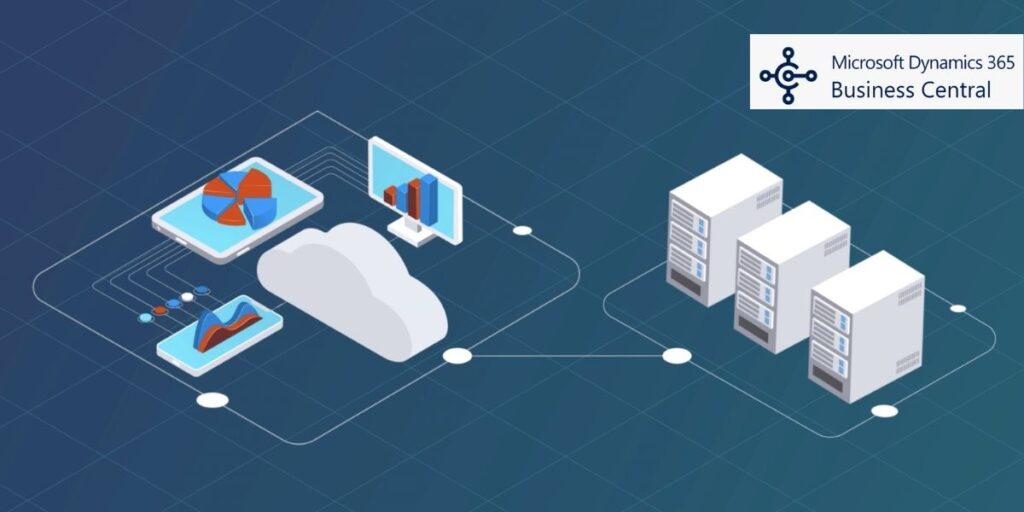
Business Central ERP
Sluggish growth and poor customer and employee engagement clearly show that your existing systems and solutions are hindering your development. Because these systems require you to spend a lot of time and effort switching between applications, looking up data in different spreadsheets and calling stakeholders for project updates, the result is substandard and unsatisfactory business performance. Modern solutions like Business Central provide a set of core functions covering Sales & Service Management, Financial Management, Project Management, Operations Management, Supply Chain Management, and Reporting & Analytics.
This cloud-based on-premises solution seamlessly connects people and processes and promotes continuous data sharing and reporting by achieving deep integration between different modules. It allows employees from different departments and locations to access the information they need when they need it and also provides visibility and control across the enterprise.
Reasons why Enterprises requires Business Central ERP
Improving Sales Efficiency
Business Central ERP enables sales teams to use a single, unified platform to support the entire process from quotation to cash. With the use of Business Central, teams can get real-time insight into past interactions, current orders, and future opportunities and analyse critical customer information when new orders are created. They can also ensure that the changes they make to quotations are reflected throughout the organization to generate accurate reports.
Get a 360-degree View of Your Customers
Business Central provides a 360-degree view of customers, allowing the team to gather all the customer’s information collected over the years in one place. From their previous purchases, their current position in the sales cycle, and the products they are most likely to buy in the future, this holistic information enables organizations to make important decisions about products, campaigns, and inventory by seeing the big picture.
Increasing Business Agility
Business Central makes it easy to deal with changes in uncertain times, as an integrated solution removes silos between systems and departments, it paves the way for the seamless flow of information between people and processes. Decision-makers can quickly obtain all the data they need and make fast and effective data-driven decisions in response to changing business priorities.
Support Remote Work
As organizations continue to recover from the long-term impact of the pandemic, cloud-based Business Central provides comprehensive support for a range of mobile devices, allowing employees to get their work done from anywhere. They can edit and share data, view project or inventory status, or even have proper conversations with customers with a complete history of interactions.
Secure and Scale the Business
Business Central also gives enterprises the ability to plug and run modules and extend the solution with PowerApps or other third-party solutions. Depending on changing needs and business growth, they can expand the solution – without investing in additional systems, while advanced security and role-based workflows ensure high availability and uptime, as well as reliable and up-to-date data backups – so organizations can focus on growing their business in a safe and scalable manner.
Make Better Decisions and Drive Business Growth
If you want to move your business from one place to another efficiently and cost-effectively, implementing Business Central is an excellent way to accelerate your business towards success, as well as streamline your day-to-day operations. This end-to-end solution can help improve sales performance, gain complete visibility into customers, increase business agility, support remote work, and provide security and reliability. It can help scale your business – enabling you to make more informed business decisions and drive business growth.
Top 5 Benefits of PaperBiz – The Paper Industry ERP Software
Paper manufacturing is a widespread industry throughout the world. In industry, many complex tasks have been performed throughout the entire production and related process. All of these processes must be carried out without the slightest error for the industry to operate losslessly and be successful. To make paper handling error-free and profitable, it is very beneficial to use ERP for the paper industry. PaperBiz ERP in the paper industry provides the industry with great assistance in areas such as production, inventory, shipping, etc.
This blog discusses the various benefits of PaperBiz that the paper industry is gaining from ERP implementation.
Perfect Inventory Management
Problem-free inventory is a prerequisite for the paper industry. A strong inventory management is required to make this possible. PaperBiz ERP for the paper industry can perform perfect inventory management.
PaperBiz ERP has a lot to offer the paper industry-
A) PaperBiz ERP effectively handles delivery orders and stock transfers. PaperBiz ERP is an ideal choice for the paper industry as it can handle the manufacturing process, inventory movement, or stock transfer from one location to another from a unified and simple interface.
B) Secondly, PaperBiz ERP, used in the paper processing industry, helps align the product packaging and barcodes for easy tracking.
C) With the PaperBiz ERP software, multiple locations in a production department can be monitored simultaneously. The stock movement feature in PaperBiz ERP helps the paper industry move goods from one location to another without any glitches or errors.
Well-planned Production
In the paper industry, there must be an ideal plan for the production of products at each time frame. Since demand never remains constant and fluctuates constantly, PaperBiz ERP in the paper industry helps with advanced production planning, leaving no room for scarcity. Demand can be high, moderate, or low. Thus, production changes in accordance with demand. PaperBiz ERP ensures that inventory will be efficiently stocked even during times of high demand to keep production running smoothly. For all these purposes, the PaperBiz ERP production module can be used for the paper manufacturing process.
The Production module in PaperBiz ERP helps forecast the demand for materials so that production can be carried out efficiently without any obstacles. The paper manufacturing ERP also ensures that operating costs are kept at least or minimum without incurring additional business expenses.
Production Quality Control Management
As far as any industry is concerned, the primary production process is the choice of raw materials. The choice of raw materials is very critical because all subsequent processes will depend entirely on the quality of the raw materials, which is paper pulp in this case. If the quality of the raw materials is not good, no matter how perfect the other processes are, the final product will still be of substandard quality.
Therefore, there should be no compromise on the quality of raw materials. To ensure that this process is carried out precisely as it should, PaperBiz ERP in the paper industry has a quality control function for paper processing. PaperBiz ERP in the paper industry allows paper manufacturers to set the required standards for raw materials. As part of this function, PaperBiz ERP checks the quality of the pulp and then sends it to the processing department after checking for compliance with quality standards. The paper handling quality control feature in PaperBiz ERP has been a boon for high-quality products.
Production takes place in several stages, such as pulp management, pulp processing, paper production, roll packaging, paper cutting, and packaging. All these processes should be carried out synchronously and hierarchically. No process can overlap and leave without completion. Using PaperBiz ERP for paper processing, the industry can create manufacturing/work orders for separate processes to ensure that the work is performed synchronously.
Deckle Management
Deckle Management is used to adjust the tedious calculations of the deckle size of the paper cutting machines in the paper industry. PaperBiz ERP’s Deckle Management in the paper industry not only calculates the position of the deckle, but also takes care of waste paper. Deckle Management provides the most optimal calculation, minimizes paper waste, and at the same time maximizes the productivity. Deckle Management has also proven to be effective for paper mills in terms of production cost savings; by reducing the amount.
Effective Billing
Billing is very important as it provides detailed information on the value of a product and other details about transactions made on behalf of the product. With PaperBiz ERP for the paper industry, invoicing becomes simple and fast as PaperBiz ERP can be integrated with production modules, shipping, order entry, etc.
Analysis with Reports
PaperBiz ERP is used for paper handling to produce customized reports very efficiently, which will help the company understand its business and work. Using the PaperBiz ERP report function, you can generate detailed reports on manufacturing orders, work orders, performance, sales, etc. This paves the way for later estimation and planning, which helps cut costs, save time, and increase revenue.
All together, we can conclude that PaperBiz ERP for paper manufacturing is an all-in-all solution for the paper manufacturing industry to carry out their task with ease. If you are interested in PaperBiz ERP Implementation for your business, kindly drop your message to supportdesk@dataman.in.
The Principle Advantages of ERP Software for Paper Industry
The paper industry is one of the largest industries in India. It is ranked fifteenth in the world paper industry ranking. It provides employment opportunities for 1.5 million people and contributes Rs 25 billion to the country’s GDP. The paper industry in India has developed into a diversified and specialized industry producing countless types of paper. The paper produced has a wide range of uses, like filter paper for watermarks and drawing sheets. Other paper products have a wide range, including paper albums, greeting cards, paper bags, paper diaries, notebooks, stationery, envelopes, periodicals, newspaper and printed card boxes, etc. Currently, paper manufacturers export paper and paper products to developed countries worth about Rs 400 crore per year. Looking to the future of the Indian paper industry, the demand for paper products such as tea bags, tissue papers, filter papers, and medical-grade coated papers are growing in the upstream market.
Why ERP Software for Paper Industry?
Paper mills are adopting more and more ERP systems because a terrific business management tool will simply track, troubleshoot and improve their entire method. With the use of ERP, paper mills have seen a dramatic increase in the convenience of obtaining information about the period of time, which will be used to optimize the processes of acquisition, production, distribution and sales.
Generally, the overall goal of an ERP system is to simultaneously improve the efficiency of processes through overall analysis and increase customer satisfaction through effective management. In addition, modern ERP products enable companies to better coordinate the flow of data between suppliers and customers and focus on cooperative commerce.
Also, supply chain management plays an essential role in developing solid relationships with mill partners, which complements the provision of a qualified and reliable module. During this period, achieving total cost control and implementing real-time value chain optimization has important potential.
Introduction of Paper Biz ERP
Paper mills that have implemented ERP software reap significant benefits as the people involved in production have complete and accurate production data to operate efficiently and maximize production processes.

ERP Software for Paper Industry
Paper Biz ERP is a comprehensive ERP Software Solution for Pulp & Paper Mills, Kraft Paper, Duplex Boards (with Simplex & Duplex Method), Writing Printing, News Print, and Tissue Paper. Paper Biz integrates all production processes and maps the main processes and workflow systems. Paper Biz ERP allows the top management to check the order and production status quickly and check any level of detail of the machine data at any time for continuous improvement. After extensive research on the entire business process, Paper Biz ERP software solution developed different vertical fields according to the needs of the paper industry.
The Principle Advantages of Paper Biz ERP are represented as follows:
Gate Management
Gate Pass management is an important thing to manage for Paper Mills. With Paper Biz ERP, you can simply use the Gate Management feature so you can easily manage Vehicle Entry at Gate, Gate Pass Generation, Gate Out Entry, Visitor Gate pass Entry, Unloading Details, Multiple Weighment etc.
Purchase & Procurement
Paper Biz ERP comes with Procurement and Purchase feature where you will effortlessly gain benefits including Indent Generation with Approval, Purchase Order Linked with Indent & Quotations, Item Wise Rate History, Purchase Order Life Cycle Analysis, and Material QC Integrated with Stocks & PO etc.
Production Management
Paper Biz ERP software holds functionalities like Production Plan with Batch Processing, Bill of Material, Production Costing for Finished Product, Production Yield & Wastage Calculation, Theoretical vs Actual consumption etc., to set the standard all-time up whereas keeping the budget on top of things.
Sales
Paper Biz ERP can manage all the sales related tasks including Sales Order, Dispatch Schedule, Sales Invoice Reel & Sheet Linked with Barcode, Pending Order Display, Sales Target Entry, Dealer wise Payment Adjustment, Bulk Credit Note Adjustment etc. This sales module can also help you manage Customer Complaint Tracking, Customer Complaint Settlement, Packing Slip Linked with Order, Export & Domestic Invoice Linked with Packing Slip and more.
Deckle Management
This Module is integrated with Sales Order. It is used to adjust the tedious calculations of the deckle size of the paper cutting machines in the paper industry. Deckle Management not only calculates the position of the deckle, but also takes care of waste paper. Deckle Management provides the most optimal calculation, minimizes paper waste, and at the same time maximizes the productivity. Deckle Management has also proven to be effective for paper mills in terms of production cost savings; by reducing the amount.
Click to know more about Paper Biz Modules
So get a vertical growth chart with your paper industry backed up by Paper Biz ERP software services as they automate and efficiently manage all of your business processes.
Would you like to try the best paper industry software for your Paper Mills? Get schedule a demo with one of our sales representatives and see for yourself how awesome it is.
If you have any queries related to this Paper Industry Software, don’t hesitate to get in touch with supportdesk@dataman.in, and we’ll be in touch via email.
Request a Demo
Three Reasons to Accelerate the Migration to Dynamics 365
The COVID-19 crisis has made normal business operations a difficult task. Just as organizations are looking for ways to cope with day-to-day operational challenges, the global pandemic brought all operations to an abrupt halt. Not only were most retailers and hospitality businesses been on the brink of shutting shops, but even industries such as IT and manufacturing have faced an unimaginable slowdown, which continues to affect their bottom line. The only way for organizations across industry verticals to adapt to the new normal is by embracing advanced technology solutions that can improve business performance and control costs.
Why Is Time So Important?
The pandemic has pushed every business to a tipping point, especially concerning their technology ecosystem. The nationwide lockdown forced organizations to immediately transition to a work-from-home model that was extremely difficult to set up. While tech-savvy companies have moved quickly and successfully to fully remote or hybrid environments, those with limited digital collaboration continue to face the brunt of poor performance, productivity, and profit margins.
As countries are affected by the second and third waves of the pandemic, organizations must accelerate the adoption of digital technologies; otherwise, they will have to face low employee morale, poor market position and dissatisfied customers. Moreover, to remain competitive in this new business and economic environment, they need to understand the strategic importance of modern digital technologies and fill the gaps that prevent them from achieving true transformation and innovation.
Reasons to Accelerate Migration to Dynamics 365
Dynamics 365 and its next-generation enterprise product suite is a modern and innovative solution that enables organizations to transform their business. This cloud-based platform offers a wide range of modern capabilities and features that organizations can use to improve the efficiency and timeliness of operations while maintaining performance in an ever-evolving and uncertain world. Here are three main reasons why you should accelerate your migration to Dynamics 365:
Boost Integration and Collaboration
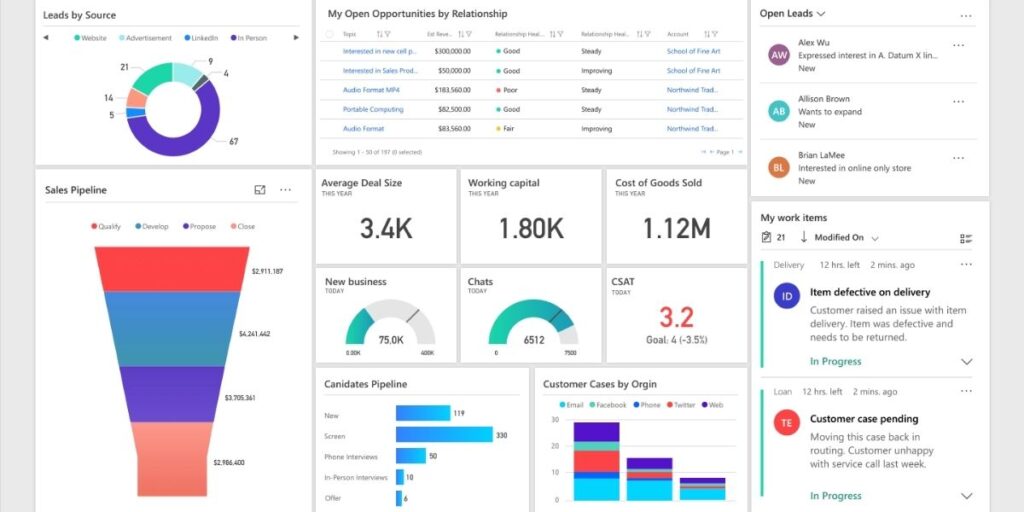
Dynamics 365
In today’s remote and hybrid workplaces, where most employees continue to work from home, Dynamics 365 helps bring all the data across the organization together. This way, no matter where your employees work or what device they use, with Dynamics 365, they can access the data they need to complete their work while enjoying a 360-degree view of the business. In addition, seamless integration with other Microsoft products such as Office 365 and Power BI allows employees to improve teamwork quickly, share information in real-time, and simplify and improve collaboration and productivity.
Enhance Business Agility and Flexibility

Dynamics 365
Sustaining a livelihood and achieving high-quality results in the post-pandemic era requires organizations to adapt to changing business needs. Dynamics 365 provides a set of pre-built business applications to meet the unique needs of enterprises in today’s rapidly changing business environment. Integration with Power Platform means developing custom applications and extending them further to increase business agility and flexibility. You can also support business growth by easily activating and deploying new users without costly edits to the underlying IT infrastructure.
Improve Security, Privacy, and Reliability
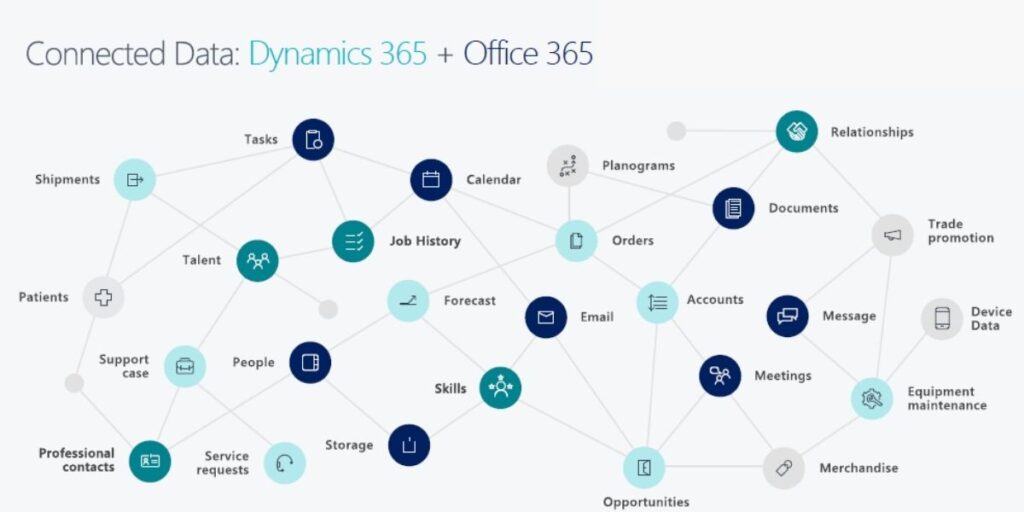
Dynamics 365
Effectively mitigating security risks in the COVID-19 world has become extremely important for organizations where employees gain remote access to corporate data using personal devices and unsecured networks. Dynamics 365 stores data in highly secure and fully equipped data centres owned and managed by Microsoft. With Dynamics 365’s security model, 99.9% uptime SLA, and powerful identification and access management mechanisms, you can rest assured that your sensitive business data is safe. You can also customize security settings according to the different needs of business departments to effectively prevent data breaches.
Wrapping Up
Organizations need to provide employees with the right tools and systems to compete, succeed, and thrive in today’s highly volatile business environment. Improving the efficiency of business processes and staff productivity while reducing the complexity of hardware and software management allows you to focus on strategic planning and other high-priority tasks. With its many cutting-edge features, Dynamics 365 enables enterprises to enhance integration and collaboration, increase business agility and flexibility, and improve security, privacy, and reliability.
So, would you like to try the Microsoft Dynamics 365 for your business? Get schedule a demo with one of our sales representatives and see for yourself how awesome it is.
If you have any queries related to Microsoft Dynamics 365, don’t hesitate to get in touch with supportdesk@dataman.in, and we’ll be in touch via email.
REQUEST A DEMO
Field Force Automation Software
Many markers are changing the approach to the marketing by using automation system. The automation system can help to easily manage sales related activities. This system can reduce the expenses, your sales team do less paper work and spend more time with customers. It increase the sales according to marketing trends.
An Effective Solution for Your Sales Team
A field force automation software is a tool that automate marketing tasks so the efficiency of sales force is increased. An effective automation system can increase the revenue of your business and it can manage:
- Customer Contacts
- New Orders
- Pending Orders
- Delivery Status
- Sales report approval or rejection.
- Identifies current marketing trends.
Now days, every person has a smart phone and use the service of internet.
The good news is Sales representative app is compatible with mobile, tablet, iPhone or desktop.
Your sales team can save all the data of customer or order by using sales tracking system. This will help in saving the time of sales reps. The field service mobile app is better than traditional paper method.
Your sales team is important part of your company, so your sales team should be effective and motivated. If your sales team have not that ability, your business should face problem by decreasing sales. The good sales automation software can maximize your return. Small and large size business, both can get advantage of this software. A sales manager can easily track sales representatives and can gathering all information related to customers. This tools also help in analyze the data for marketing analysis.
Request a Demo now
Click here : https://dataman.in/requestdemo.php?product=FieldForceManagementSystem
OR
Call:+91-7905573833 / +91-9415128075
Email: sharil@dataman.in
Website : http://grahaak.com
Why Pulp & Paper Mills Operations Management ERP Software is Beneficial?
Working flawlessly in the paper industry, aside from keeping the traditional writing portion intact, is no longer a tiring burden. The smart manufacturing solution of Enterprise Resource Planning (ERP) software guarantee for the Paper Manufacturing Industry can help you eliminate all concerns about the effective integration of various departments, work centers, and warehouses.
Selecting the best ERP system for the paper industry can be difficult sometimes due to a lack of knowledge in a particular industry, but we will help coordinate paper production in the pulp and paper industry. Paper Biz is the best software solution to meet all the needs of the pulp and paper industry, integrating manufacturing technology in the most effective way. It will systematize all stages of papermaking by consolidating manufacturing order management, work center coordination, final product tracking, cost and waste management, and preparing review and analysis reports for proper planning.
How Paper Biz is Beneficial for Paper Manufacturing Industry

Paper Mills Operations Management ERP Software
Ensure Raw Material Quality with BOM
Relieve concerns about the quality of materials, the use of various components, and the cost of components. The BOM function of Paper Biz ERP provides the perfect foundation for the manufacturing process. From the procurement of components required by the pulp and paper industry to the final price, that can be fixed using a BOM.
Paper Biz’s Bill of Material (BOM) function ensures a complete solution for standardized manufacturing processes by providing quality components for various types of products. A detailed BOM can also avoid the mismanagement of components because all items purchased are listed in the BOM. Through the implementation of Paper Biz ERP, the management of the sales network and the management of components based on manufacturing orders have also become simple.
Manage Manufacturing Order for Different Types of Papers
You can organize your product order based on product variants and by-products using Paper Biz ERP for the Paper Manufacturing Industry. Manufacturing orders from the supply chain are automatically updated through the software application. This helps to plan the purchase of components and communicate the delivery time of the product. Using Paper Biz ERP solutions can quickly generate and manage quotations, sales order preparation, and approval at different stages of the order. In the Paper Biz platform, the manufacturing stage, work order scheduling to different work centers and work order-based production management can be arranged while managing deadlines.
Scrap and Waste Management
The less waste, the easier it is to manage. Waste can be reduced by preventing product loss through electronic coordination of all activities. However, it is impossible for an industry not to produce waste at all. The waste management function of Paper Biz ERP helps to check the disposal of industrial waste to avoid legal issues.
Proper inventory management also helps avoid waste of components and paper bundles. The number of waste products is minimized, and the conversion of waste products to by-products can also be planned through an effective paper industry ERP like Paper Biz.
Track Product Movement and Shipping
Solve all your worries about the timely delivery of products to buyers. Cloud-based ERP, Paper Biz, provides online tracking tools for the industry. Product batch numbers and lot numbers enable the paper industry to ensure lot control of the use of components, track different types of paper, track shipments, and quickly obtain delivery information at the supply network. It also guarantees the timely delivery of products and the database management of the shipping company with a time tracking function.
Wrapping Up
Paper Biz ERP software is the best ERP application in the pulp and paper industry, and it will surely reach a new level in all aspects of the business. It can help track every step from anywhere in the world in time and get automatic alerts about product quality and quantity. Integration with manufacturing modules and warehouse management also facilitates access to all detailed information about product components, and batch numbers enable tracking of the batch of paper if any damage or quality-related issues are detected.
If you are looking for Paper Biz ERP for your paper business, please get in touch with our team at +91-9935142799 to find out how we can increase your revenue and reduce operating costs.
